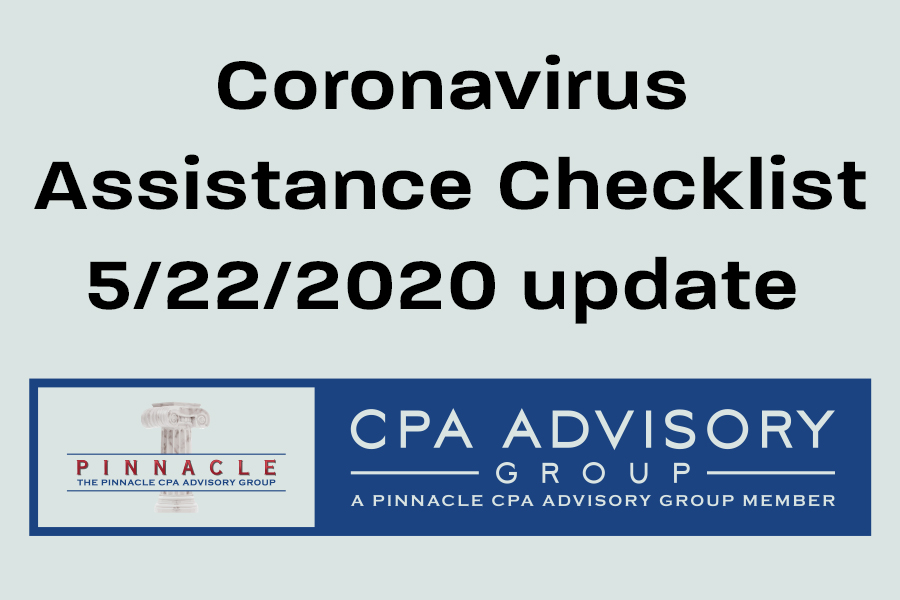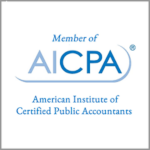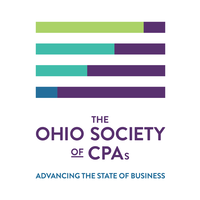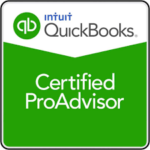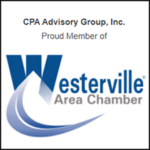Thomson Reuters —
This checklist was prepared for our clients and friends as a quick way to identify eligible programs.
Please contact us for the details. Many of the details are not available yet from the government.
This is not meant to be an all-inclusive summary of the extensive programs.
Delays in Filing and Paying:
___ Federal tax payments and returns due 4/15/20 are delayed until 7/15/20
___ For individuals, trusts, estates, partnerships, associations, companies and corporations
___ Automatically postpones all 4/15/20 filings without a limit on amount
___ Includes 1st and 2nd quarter 2020 federal estimates
___ Penalties and interest are waived for this 90 day period
___ Includes individual, trust, gift tax, and C corporation returns that were due 4/15/20 – 7/15/20
___ Payments for IRA’s, HSA’s, MSA’s are also delayed until 7/15/20
___ 2016 claim for refund (statute of limitation issues) is not delayed
___ Most states will follow suit for a delay in payment and filing
Direct Payments (Rebates) to Individuals:
___ Individuals with adjusted gross income (AGI) ≤ $75,000 receive $1,200
___ Married couples with AGI ≤ $150,000 receive $2,400
___ Head of households with AGI ≤ $112,500 receive $1,200
___ Parents with children under age 17 receive $500 / child
___ Phase-outs occur for individuals from $75,001 – $99,000 (head of household from $112,501 – $136,500)
___ Phase-outs occur for married couples from $150,001 – $198,000
___ Rebate is reduced by $5 for each $100 that exceeds the above AGI
___ Income is based on 2018 return unless 2019 return is filed
___ Money is now being sent (up to 12/31/19) by direct deposit if that info is available or by check otherwise
___ Rebate is not subject to tax
___ Receive even if you don’t file a return as long as you have a SSN and are not claimed by someone else
___ Get My Payment – IRS website tool for payment status information and entering direct deposit information
___ Reconciliation on 2020 return (Keep if you got too much and claim a credit if you got too little based on 2020 income)
Expanded Unemployment Benefits:
___ Extra $600 / week for 4 months (in addition to state benefit)
___ Maximum of 39 weeks for combined federal and state assistance
___ Self-employed and independent contractors would be eligible
Retirement Account Withdrawals:
___ Required minimum distributions (RMD) for 2020 can be waived (even inherited IRA’s )
___ 10% penalty is waived on up to $100,000 distributions (must be used for Corona related purposes)
___ Started 1/1/20
___ Can be repaid within 3 years or are taxed over 3 years (can elect out of 3 year spread)
Student Loans Held by the Dept. of Education:
___ All payments can be suspended through 9/30/20
___ 0% interest will accrue
Federally Backed Mortgage Loans such as FNMA and FHLMC:
___ 180 day forbearance can be requested by the borrower
___ No fees, penalties or interest beyond contractual amounts will be added
Above-the-Line Charitable Deduction:
___ Maximum $300 during 2020
___ Permitted even if you don’t itemize
___ Donations to a donor advised fund don’t count
Qualified Family Leave:
___ Employees unable to work or telework who leave for care of a child under age 18 (school or childcare is closed)
___ Wages paid 4/1/20 to 12/31/20
___ Employed at least 30 days
___ First 10 days may be unpaid but employee can use vacation, personal, medical or sick leave benefits
___ After 10 days, paid leave is required (2/3 of normal gross pay not to exceed $200 / day)
___ The aggregate maximum is 10 weeks and $10,000
Qualified Sick Leave:
___ Unable to work or telework for specific virus-related reasons
___ Subject to quarantine, isolation order, advised by health provider to self-quarantine, and experiencing symptoms
___ 80 hours of paid sick time to full-time employees
___ Part-time employees based on average hours worked over a 2 week period
___ No limit for length of service
___ Regular rate up to a maximum of 10 days at $511 / day not to exceed $5,110 / employee to take care of self
___ Regular rate up to a maximum of 10 days at $200 / day not to exceed $2,000 to take care of someone else
Qualified Family or Sick Leave General Rules:
___ Small business (< 50 employees) exemptions are coming
___ Increased by portion of qualified health plan expenses
___ Increased by 1.45% Medicare tax
___ Not subject to 6.2% SS tax
___ Refundable tax credit if it exceeds the credit on employer’s payroll tax
___ Comparable credits are offered to self-employed individuals (net earnings divided by 260 days)
Small Business (generally < 500 employees) Loans (Paycheck Protection Program)($649 Billion):
___ Covers employee payroll costs
___ Administered by banks who are certified SBA Lenders (guaranteed 100% by SBA)
___ Eligible if in operation on 2/15/20
___ Sole proprietors and independent contractors (self-employed) are eligible and use net Income from self-employment
___ Qualified expenditures include payroll, group health care, mortgage interest, rent, utilities, interest on existing debt
___ Payroll costs include salary, commission, tips, health care insurance, and state unemployment
___ Employees and self-employed have qualifying costs up to $100K (Calculated max for owner over 8 weeks is $15,385)
___ Those having a principal residence outside the US do not qualify
___ Utilities include electric, gas, water, transportation, phone, and internet
___ 6/30/12 is last day to apply or receive a loan but it is first come first serve…move quick!!!
___ Loan is 2.5 * monthly payroll costs (over 12 months prior to loan) (special seasonal and industry rules) up to $10 million
___ Interest at 1% loan with a 2 year maturity
___ Payments will be deferred for a minimum of 6 months from date of loan disbursement
___ No collateral, personal guarantees or recourse to owners
___ Funds should be used during the covered period in the 8 weeks after loan origination (loan can be forgiven in whole or part)
___ Loan principal is forgiven for proceeds used over an 8 week period for qualified costs listed above
___ The 8 week period begins on the date of the loan origination
___ Expected forgiveness is the amount lender expects borrower to expend
___ At least 75% of the loan must be used for payroll costs to have full forgiveness
___ Amount forgiven is reduced if FTE headcount declines or salaries decrease
___ Start gathering monthly payroll (W-2’s and 941’s) and self-employed information (Sch C and bank stmts) for 2019 and 2020
___ Applicant must submit SBA Form 2483 to the bank and whatever forms the bank requires (varies by bank)
___ Deductions for tax exempt PPP loan is not deductible
SBA Economic Injury Disaster Loans (EIDL) (< 500 employees)
___ Emergency advance (grant) up to $10,000 within 3 days of applying (have not seen any of these after weeks)
___ Up to $2M in loans (amounts over $10,000 are loans at 3.75% for up to 30 years) (Non-profits get 2.75%)
___ Must have been in business as of 1/31/20
___ Loans available from 1/31/20 – 12/31/20
___ Includes sole proprietors with and without employees
___ Can still do the paycheck protection program above but the $10,000 will be applied against the loan
Employee Retention Credit:
___ For employers whose operations were fully or partially suspended as a result of a government order; or
___ For employers who had a significant decline in gross receipts (declined by > 50% from same quarter in prior year)
___ Employers with ≤ 100 employees, all wages are eligible (limits if >100)
___ Refundable payroll tax credit of 50% of wages (new IRS Form 7200)
___ Up to $10,000 / employee / quarter
___ Cannot use this credit and the small business loan above
___ Relates to wages paid 3/13/20 – 12/31/20
Payroll Tax Payment Delay
___ Employers and self-employed
___ 6.2% matching money
___ 3/27/20 – 12/31/20
___ Pay ½ by 12/31/21 and ½ by 12/31/22
Employer Payments of Student Loans:
___ Tax free to the employee with a maximum of $5,250
___ Paid by employer for employee
___ 3/27/20 – 1/1/21
Net Operating Loss Expansion:
___ NOL’s generated in 2018, 2019 or 2020 can be carried back 5 years
___ The 80% limit on NOL’s is suspended to fully offset income
Business Interest Deduction
___ Business interest deduction was increased from 30% of taxable income to 50% of taxable income
Qualified Improvement Property Technical Correction:
___ 100% bonus depreciation is permitted on interior improvements for non-residential property
___ Retroactive for improvements after 9/27/17 filed on Form 3115 Change in Accounting
Loans to Certain Industries (the Big Winners):
___ Air and cargo carriers
___ Businesses critical to national security
___ Hospitals
___ Many government branches
___ Education
Ohio Considerations:
___ Ohio and most Ohio cities have delayed filing and payment date to 7/15/20
___ Ohio Dept. of Insurance – employees with reduced hours still can have group coverage, health insurance payments can be delayed for 60 days, COBRA and continuation rules are loosened for now.
___ Ohio unemployment pays 50% of average weekly wage with a $118 minimum / week and a $424 maximum / week for 26 weeks
Other Considerations:
___ Business interruption insurance – hard to prove claim
___ Business liability insurance – are you exposing employees or clients to the virus
___ Workers compensation – probably not but health care workers maybe
___ Off premise insurance – have you thought about property being kept offsite now
___ Employee rights must be posted by 4/1/20
___ Proactively call lenders and work out payment arrangements
___ Stay safe!!!
__
LINKS TO SOME HELPFUL REFERENCES:
Coronavirus Aid Relief and Economic Security Act (CARES Act) (3/27/20)
Families First Coronavirus Response Act (3/18/20)
SBA emergency $10K advance for EIDL
SBA Paycheck Protection Program
IRS Notice 2020-32 – Deductibility of PPP expenses
Contact Us
Do business with a different kind of CPA firm – the CPA Advisory Group
Visit Us
131 Dilmont Dr., Suite 200
Columbus, OH 43235
CPA Advisory Group, Inc.
Leading Small Businesses and Individuals to Success

